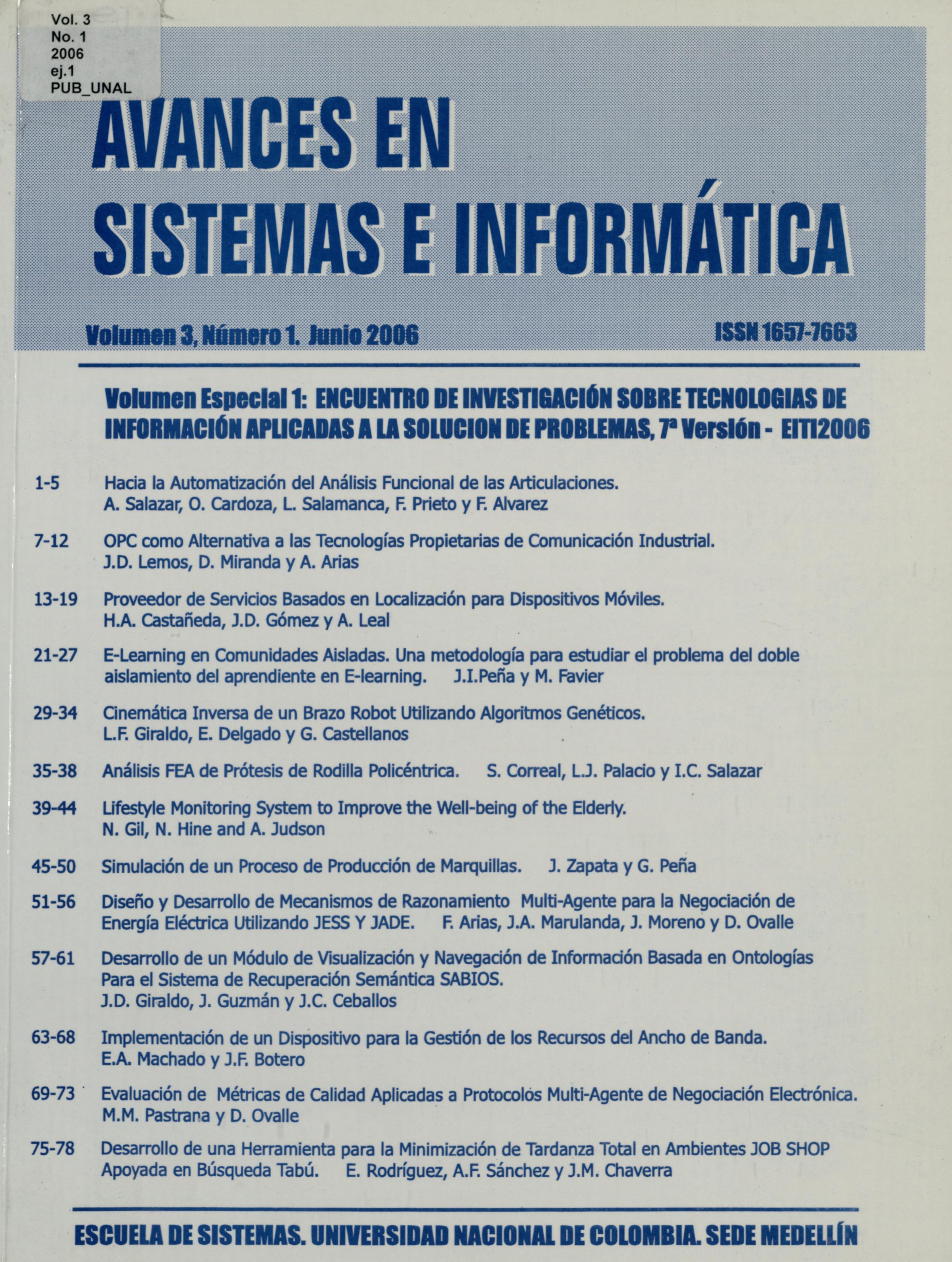E-learning en comunidades aisladas. Una metodología para estudiar el problema del doble aislamiento del aprendiente en e-learning
Palabras clave:
E-learning, Aislamiento humano, Regiones aisladas, Aplicación de tecnología, Formación Organizacional (es)Descargas
Education is a path to improve business competitiveness. Education allows individuals to get a better participation in society. Advances in information technology tied with the changes in society, enable people to gain complete access to education by e-learning. E-learning pulls down barriers of time and space to provide education to individuals. In isolated regions, e-learning can help to improve technology-related skills. While e-learning helps to find solutions to a number of problems, it also possesses some inherent problems to managers. Higher dropout rate is an important problem in e-learning process. Learner’s feeling of isolation is a principal cause of dropout. When organizations introduce e-learning in isolated regions, a problem emerges: that of double isolation for the learner working on the outside of an academic community. This article presents a methodological approach to set out to construct a model to determine what organizations precisely do to deal with the problem of double isolation, as well as what kinds of results they obtain.
Referencias
Alavi, M. y Gallupe, B. (2003), ‘Using information technology in learning: case studies in business and management education programs’, Academy of Management Learning and Education 2(2), 139-153.
Avenier, M. (2005), Elaborer des savoirs actionnables à partir de récits de pratiques est. : transformer de l’expérience en science avec conscience, in ‘Communication présentée au Gè Congrès Européen de Science des Systèmes - Paris’.
Conliffe, M. (2006), ‘On isolation’, The Midwest Quarterly 47(2), 115-130.
Dyrud, M. (2000), ‘The third wave: a position paper', Business communication quarterly 63(3), 81-93.
Favier, M. (1998), Le travail en groupe à l’áge des réseaux, Economica (Paris).
Favier, M. (2003), Des questions autour du e-learning. Présent et futur des Systèmes d'information, PUG, Grenoble.
Favier, M., Kalika, N. y Trahand, (2004), ‘E-learning / e-formation : implications pour les organisations’, Systèmes d’information et Management 9(4), 3-10.
Giddens, A. (1998), The constitution of society, Polity Press, Cambridge. [versión en español: La constitución de la sociedad. Bases para la teoría de la estructuración. Buenos Aires: Amorrortu 1998].
Huang, H. (2002), ‘Toward constructivism for adult learners in online learning environments’, British Journal of Educational Technology 33(1), 27-37.
Johansen, R. (1988), Groupware: computer support for business teams, The Free Press (New York ).
Knowles, M. (1990), L’apprenant adulte. Vers un nouvel art de la formation, Les éditions d’organisation (Paris).
Le Moigne, J. (1990), La modélisation des systèmes complexes, Dunod (Paris).
Le Moigne, J. (1994), La théorie du système genéral, PUF (Paris).
Luhmann, N. (1998), Sistemas sociales, lineamientos de una teoría general., Technical report, Anthropos, Universidad Iberoamericana, Centro Editorial Javerino, Barcelona.
Nunamaker, J. y Zhang, D. (2003), ‘Powering e-learning in the new millennium: an overview of e-learning and enabling technology', Information Systems Frontiers 5(2), 207-218.
Orlikowski, VV. (1992), ‘The duality of technology: rethinking the concept of technology in organizations', Organization Science 3(3), 398-427.
Peña, J. (2003), Formar autonomía en el aprendizaje con un curso magistral de teoría general de sistemas. Technical report, Trabajo de Grado. Especialista en Pedagogía para el Desarrollo del Aprendizaje Autónomo, UNAD, Bogotá.
Peña, J. (2005), E-learning en communantés isolées: l'isolement de l’apprenant, Technical report, Mémoire Master Recherche, Université Pierre Mendès France, Grenoble.
Piccoli, G., Ahmad, R. y Blake, I. (2001), ‘Web-based virtual learning environments: A research framework and a preliminary assessment of effectiveness in basic it skills training’, MIS Quarterly 25(4). 401-425.
Rogers, C. (1984), Liberté pour apprendre?, Dunod (Paris).
Salas, E. (2002), ‘Emerging themes in distance learning research and practice: some food for thought’, International Journal of Management Reviews 4(2), 135-153.
Thomas, R. (2005), ‘Supporting online students with personal interaction’, Educasc Quarterly 28(1), 10.
UNCTAD (2005), E-commerce and development: Report 2004, Technical report. En Línea: < http://r().unctad.org/ecommerce/ecommerce_en/... .../edr04_en.htm> C-06/05.
Vega, G. y Brennan, L. (2000), ‘Isolation and technology: The human disconnect’, Journal of Organizational Change Management 13(5), 468-481.
Venter, K. (2003), ‘Coping with isolation: the role of culture in adult distance learners use of surrogates', Often Learning 18(3), 271-287.
Welsh, E. (2003), ‘E-learning: emerging uses, empirical results and future directions’, International Journal of Training and Development 7(4), 245-258.


















